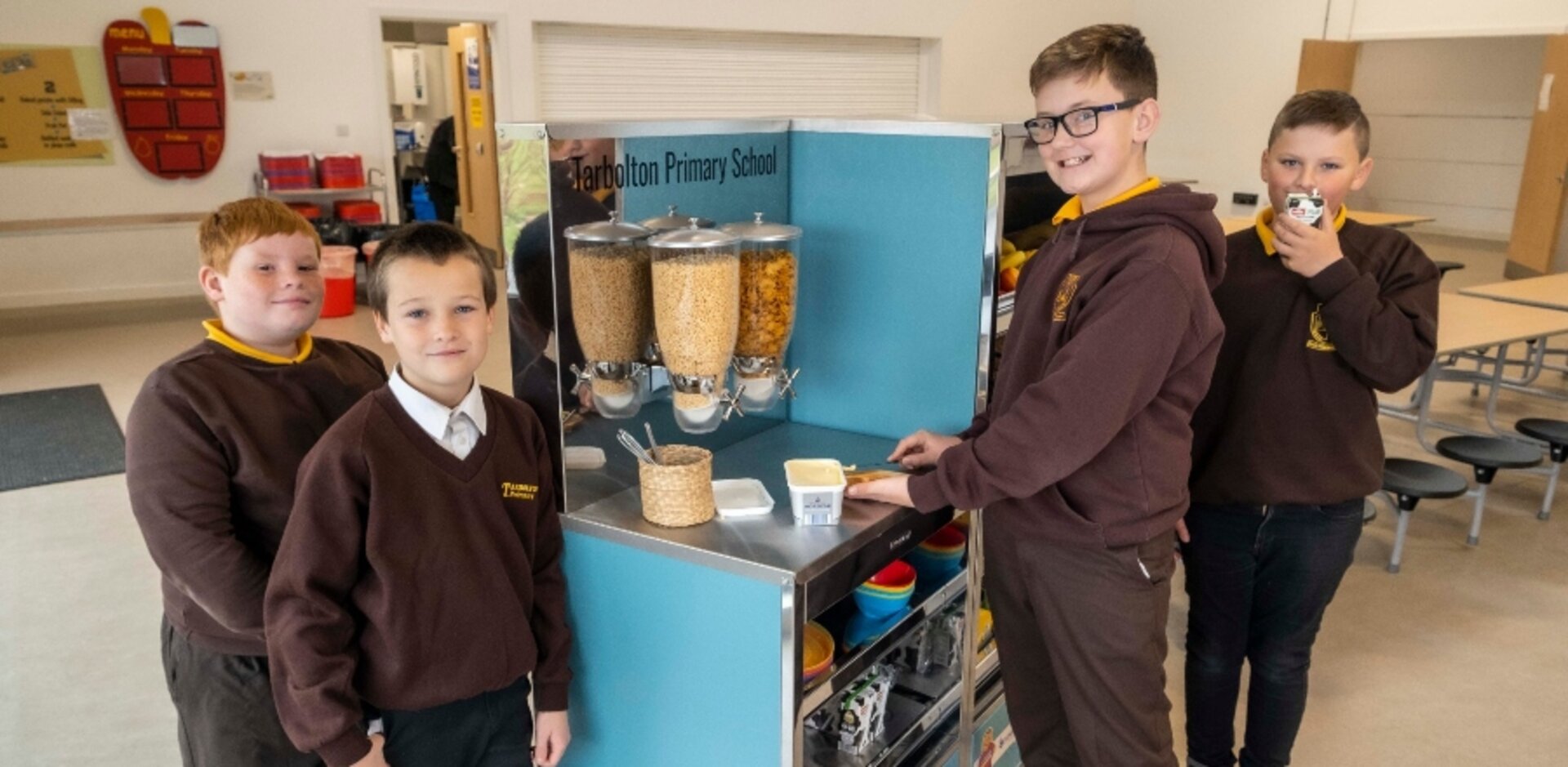Success as schools serve up breakfast on the go

An innovative project offering pupils in Scotland the chance to pick up a free breakfast from a mobile cart is to be extended to other UK schools following a successful pilot.
The ‘grab-n-go’ scheme is based on a similar model used in the US and Canada and will give pupils easy access to nutritious food before class.
During the pilot, every pupil in two primaries and a secondary school in East Renfrewshire had access to free cereal, toast, and fruit.
Researchers from Glasgow Caledonian University surveyed almost 500 pupils and 39 teachers during an initial trial in Barrhead and found many children skipped breakfast completely before school.
Pupils could help themselves to food from a breakfast cart, either before the start of the school day, or during the first half hour.
Professor John McKendrick, co-director of the Scottish Poverty and Inequality Research Unit at Glasgow Caledonian University, said: “An overwhelming majority of teachers were in favour of schools offering breakfast food provision. “The teachers surveyed were able to recall specific examples of students engaging less in learning on account of not eating breakfast. We also observed and talked with pupils. It is clear that the breakfast cart provided a service that was used and welcomed by staff and pupils alike.
“Over the course of five weeks, 827 children collected food from the cart. The vast majority of pupils lifted toast, 75%, with one quarter picking up at least one piece of fruit.”
Before the trial, two-thirds of the secondary school teachers surveyed said pupils who missed out on eating in the morning were less able to concentrate, lacked energy, and were less engaged in learning.
The pilot was the result of a partnership between The Greggs Foundation, Glasgow Caledonian University, East Renfrewshire Council, catering companies E&R Moffat and Brakes, and Lindsay Graham, of the Poverty and Inequality Commission Scotland.
Lindsay Graham said: “In the current pandemic times this model could prove to be useful to help with delivery of breakfasts, lunch, and other food service opportunities like supper or after school clubs at the end of a school day.
“It’s great to see how a community partnership between sectors enabled this innovative approach to be piloted in East Renfrewshire. Most important was the access to breakfast the carts gave to all pupils at the start of the school day. A priority for us all in the pandemic recovery is good nutrition and wellbeing so this project and its learning is very timely”
Pupil surveys showed skipping breakfast is common among secondary school pupils – with 63% not eating every morning – compared to just seven percent of primary age children. Girls in secondary school were more likely than boys to skip breakfast, with 34% never eating before school.
Lynne Hindmarch, Breakfast Club Manager, Greggs Foundation, said: “We were delighted at the positive outcome of the carts. They work well with minimal staff and supervision required with higher participation rates.
“Greggs Foundation is delighted to be able to purchase several carts to use within our current breakfast club schools and we are hoping to roll this out further in the long term.”
Tarbolton Primary, in Ayrshire, was one of the first schools to receive a permanent cart following the trial. Kellogg’s and Quorn Foods have signed up to join the Greggs Foundation in funding a further 17 carts to be placed in schools across the UK.
William Moffat, Managing Director of equipment manufacturer E&R Moffat, said: “There’s no doubt the carts have helped reach pupils who were not getting a meal at the start of their busy day at school.
“As financial difficulties escalate for many families, this project will prove even more crucial in reaching out to pupils.”
A spokesman for Brakes added: "We are delighted to be involved in the collaborative project which supports every child."
